Gonçalo Castelo-Branco
Gonçalo Castelo-Branco is Professor of Glial Cell Biology at the Department of Medical Biochemistry and Biophysics at Karolinska Institutet, Stockholm, Sweden. He received his PhD in Medical Biochemistry in 2005, working on development of dopaminergic neurons and neural stem differentiation. He completed post-doctoral fellowships first at the Karolinska Institutet and then at the University of Cambridge, United Kingdom, working in neural and pluripotent stem cells and chromatin.

Gonçalo Castelo-Branco started his research group in 2012, focusing on the molecular mechanisms defining the epigenetic state of cells of the oligodendrocyte lineage.
The main focus of Prof. Castelo-Branco's research group is to investigate how distinct epigenetic states within the oligodendrocyte lineage are established, by identifying key transcription factors, chromatin modifying complexes and non-coding RNAs that are involved in epigenetic transitions, using technologies such as RNA-Seq (single-cell and bulk), quantitative proteomics and epigenomics, among others.
The long term aim of this research group to design epigenetic based-therapies to induce regeneration (remyelination) in demyelinating diseases, such as multiple sclerosis. Prof. Castelo-Branco has received many prestigious awards and grants, including the European Research Council Consolidator Grant.
Selected Publications
Jäkel, S., Agirre, E., Mendanha Falcão, A., van Bruggen, D., Lee, K. W., Knuesel, I., Malhotra, D., Ffrench-Constant, C., Williams, A., & Castelo-Branco, G. (2019). Altered human oligodendrocyte heterogeneity in multiple sclerosis. Nature, 566, 543–547. https://doi.org/10.1038/s41586-019-0903-2
Falcão, A. M., van Bruggen, D., Marques, S., Meijer, M., Jäkel, S., Agirre, E., Samudyata, Floriddia, E. M., Vanichkina, D. P., Ffrench-Constant, C., Williams, A., Guerreiro-Cacais, A. O., & Castelo-Branco, G. (2018). Disease-specific oligodendrocyte lineage cells arise in multiple sclerosis. Nature Medicine, 24, 1837–1844. https://doi.org/10.1038/s41591-018-0236-y
Marques, S., van Bruggen, D., Vanichkina, D. P., Floriddia, E. M., Munguba, H., Väremo, L., Giacomello, S., Falcão, A. M., Meijer, M., Björklund, Å. K., Hjerling-Leffler, J., Taft, R. J., & Castelo-Branco, G. (2018). Transcriptional Convergence of Oligodendrocyte Lineage Progenitors during Development. Developmental Cell, 46(4), 504-517.E7. https://doi.org/10.1016/j.devcel.2018.07.005
Marques, S., Zeisel, A., Codeluppi, S., Van Bruggen, D., Falcão, A. M., Xiao, L., Li, H., Häring, M., Hochgerner, H., Romanov, R. A., Gyllborg, D., Muñoz-Manchado, A. B., La Manno, G., Lönnerberg, P., Floriddia, E. M., Rezayee, F., Ernfors, P., Arenas, E., Hjerling-Leffler, J., … Castelo-Branco, G. (2016). Oligodendrocyte heterogeneity in the mouse juvenile and adult central nervous system. Science, 352(6291), 1326–1329. https://doi.org/10.1126/science.aaf6463
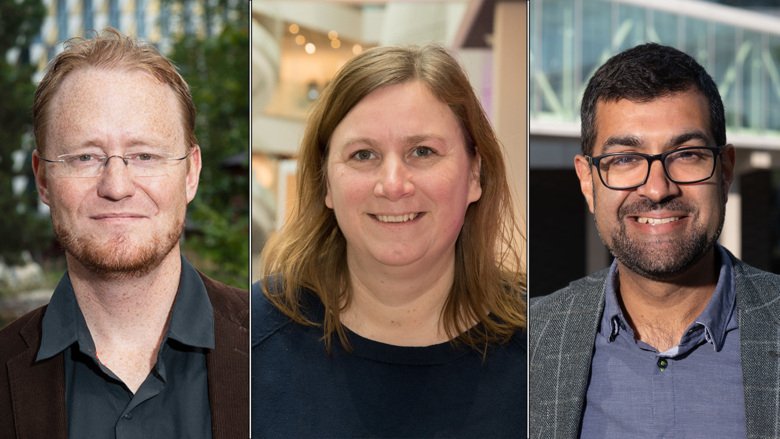 Photo: Stefan Zimmerman,Ulf Sirborn
Photo: Stefan Zimmerman,Ulf SirbornGonçalo Castelo-Branco has been awarded the 2022 ERC Advanced Grants
Gonçalo Castelo-Branco is one of the three KI researchers who have been awarded the 2022 European Research Council (ERC) Advanced Grants. The grant will support Gonçalo's group in using single-cell and spatial sequencing technologies to investigate the function of oligodendrocytes, cells of the central nervous system, in the context of multiple sclerosis (MS).
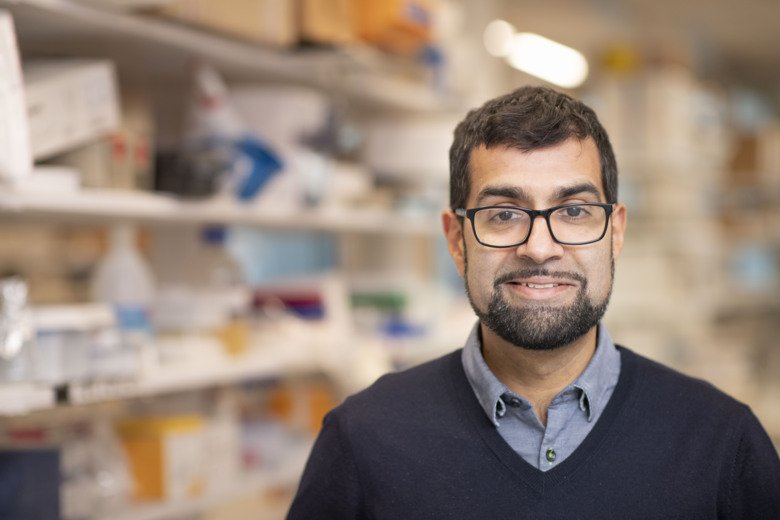 Photo: Ulf Sirborn
Photo: Ulf SirbornGonçalo Castelo-Branco's new publication in Developmental Cell
A team led by Gonçalo Castelo-Branco with researchers from Karolinska Institutet and Stockholm University found that oligodendrocytes, a cell type in the central nervous system known to be targeted in multiple sclerosis (MS), arise in brain during human development much earlier than mainly thought. The findings could be relevant for developing regenerative-based therapies for MS.
 Photo: Getty Images
Photo: Getty ImagesGonçalo Castelo-Branco’s new publication in Science
Researchers at Yale University, in collaboration with the team led by Gonçalo Castelo-Branco, have developed a new technology, spatial-CUT&Tag, that gives precise information about the location of activated and inactivated genes in a specific tissue. The technology has a broad range of scientific and medical applications, and can provide important knowledge about the development of disease.
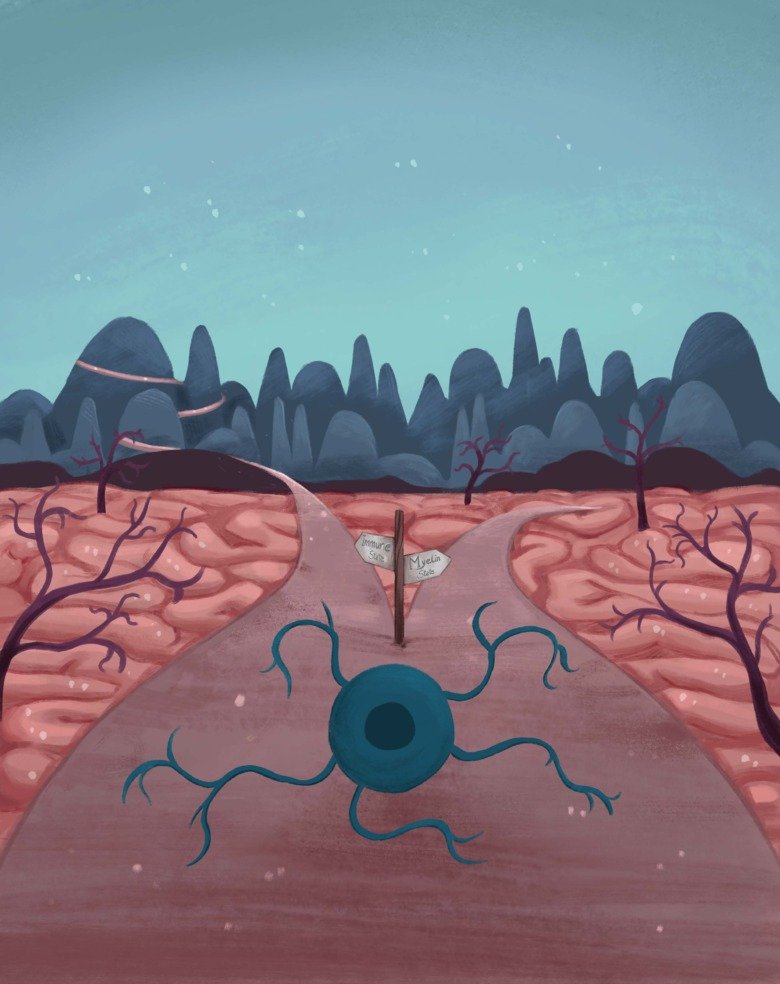 Photo: Amagoia Agirre
Photo: Amagoia AgirreGonçalo Castelo-Branco’s new publication in Neuron
An international team led by Gonçalo Castelo-Branco has discovered that oligodendrocytes in the central nervous system might have a more important role in the development of multiple sclerosis (MS) than previously thought. The findings could open for new therapeutical approaches to MS.
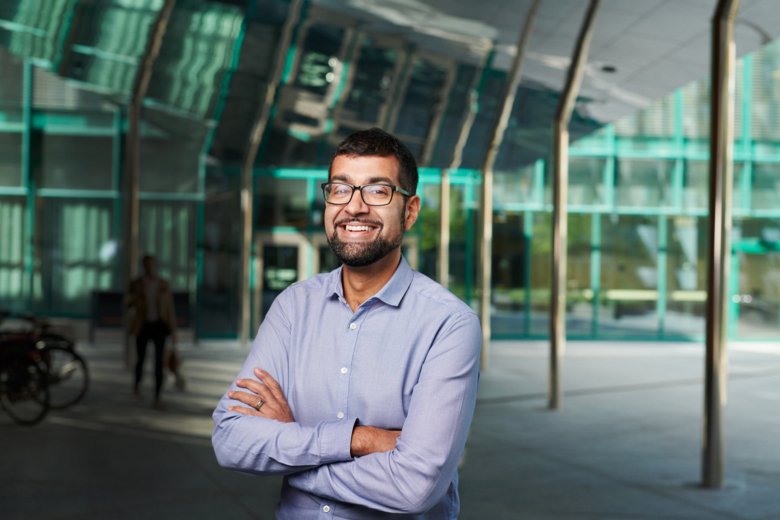 Photo: Erik Flyg
Photo: Erik FlygLau Fellow Gonçalo Castelo-Branco is now Professor of Glial Cell Biology
Gonçalo Castelo-Branco has been newly appointed as Professor of Glial Cell Biology at the Department of Medical Biochemistry and Biophysics. "When KI opens a Professorship in a specific area, KI is making a commitment that this is an area of interest for KI, both in the present and in the future. I am very eager to contribute to create an environment that fosters research in glial cell biology at KI." said Gonçalo in this interview.
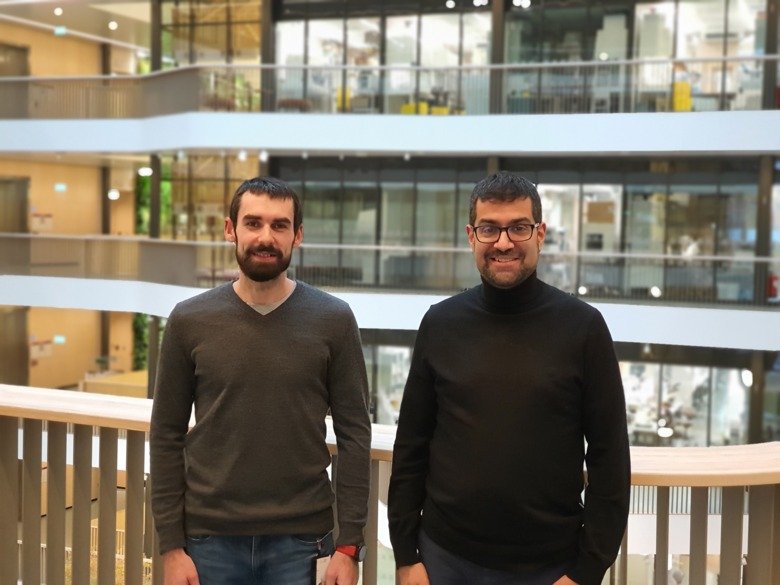 Photo: Mandy Meijer
Photo: Mandy MeijerGonçalo Castelo-Branco's new publication in Nature Biotechnology
The Castelo-Branco lab has developed a technique, single-cell CUT&Tag, that makes it possible to examine tens of thousands of single cells simultaneously to determine their histone profiles. The technique was applied to the mouse brain and can be used to study epigenetics at a single-cell level in other complex tissues.
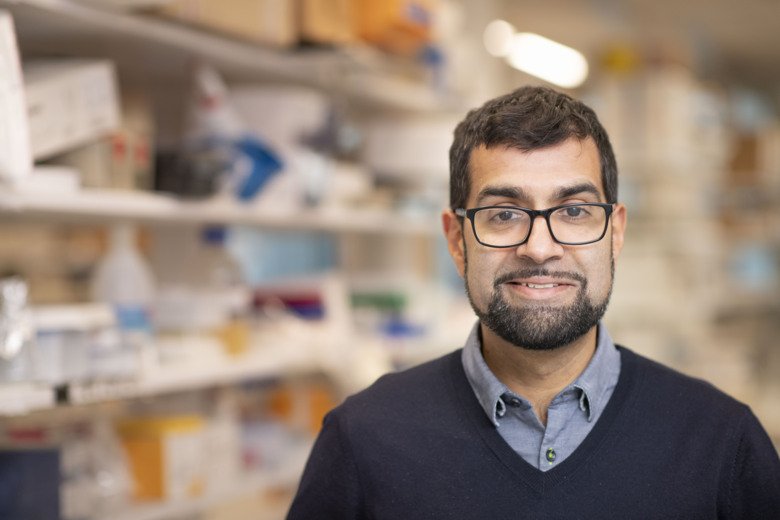 Photo: Ulf Sirborn
Photo: Ulf SirbornGonçalo Castelo-Branco has been awarded the Göran Gustafsson Prize 2021 in Medicine
The Royal Swedish Academy of Sciences has awarded Gonçalo Castelo-Branco the Göran Gustafsson Prize 2021. Gonçalo has been awarded the prize in Medicine for his research of oligodendrocytes, a type of brain cell, and the myelination of neurons in health and disease.
